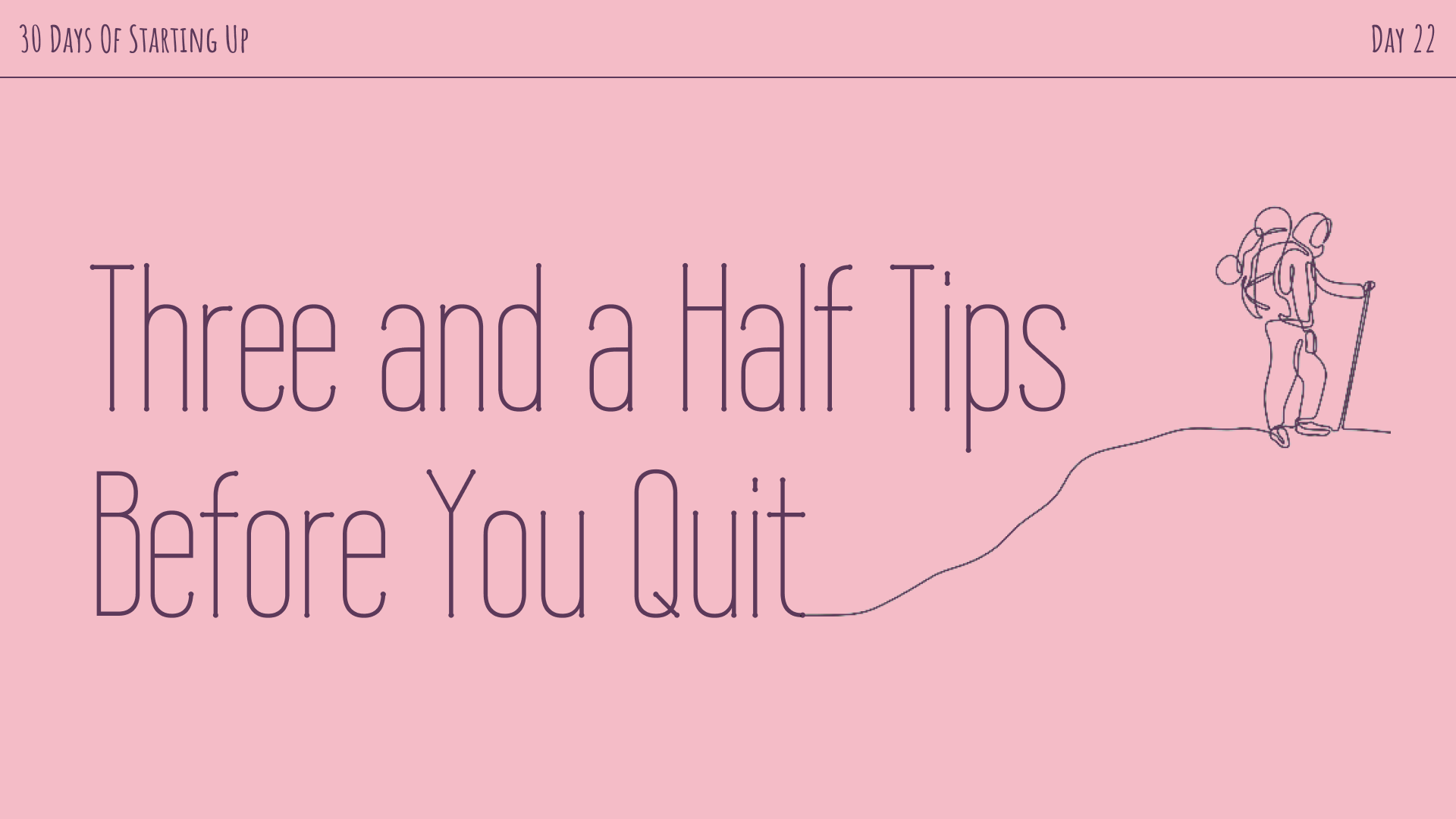Three and a Half Tips Before You Quit

I started by asking for advice from friends who survived outside of the corporate world. One piece of advice that I kept at heart is building multiple streams of income.
When I got the advice, I only had one stream of income which is my corporate job. It makes me very dependent on the job; quitting that only income source is very scary. People in my field often picked up teaching; the friend who gave me the advice had a great teaching portfolio. I started to look for part-time teaching gigs and luckily landed on two great recurring opportunities to teach interaction design.
I also started stock and cryptocurrency investment to build on a passive income portfolio. Truth be told, I am currently negative on this “income stream.” But getting financial literacy is crucial to wealth growth, and I don’t regret starting to learn. I am confident that one day it will pay off. I recommend studying Jack Bogle’s investment principles.
There is also advice I didn’t take. Storytime! A friend started a design agency as a side business while working for a tech company. He was very successful and eventually quitted his tech job to pursue it full-time. When I asked him when is the time he thinks he is ready to quit and commit full-time, he said: “It is time (to quit) when your side income is equal to or greater than the day job income.”
It blew my mind! It was such a clean-cut and fool-proof formula. However, I eventually decided against it. Here are my two reasons:
It does not apply to startup businesses. I have to file a conflict of interest disclosure form to my employer, which has a slim chance of getting approval. Most tech giants are branching their businesses everywhere; your startup idea will likely be a conflict of interest.
It is too conservative. It will take me a long time, if ever, to make that much income from a side hustle. I don’t want to wait that long.
I think this advice is still very sharp and may apply to some other folks in their situations, so I thought I would share.
Apart from creating more income streams, I also look into cutting down living expenses. Learning to cook wasn’t something I did specifically in preparation for quitting my job, but I think it helped a lot. It cuts down food expenses significantly while maintaining or even improving my life quality. I didn’t limit the number of times I can eat out - I eat out whenever I want to. I switched the default option from eating out to homemade meals. This shift also makes eating out feel better than before. Quitting a job will mean an income cut; you either have to dig deeper into your savings or reduce expenses. Cooking is a pretty painless way to cut down expenses.
The last tip I give would be to sort out your housing for the next few years before quitting. If you are like me, who is renting in big cities like NYC, signing a new lease requires income documents like pay stubs and W-2 forms. Before you quit, you should find a place that you would want to stay for the duration of your entrepreneurship journey and sign the lease. Once you quit, you won’t have the same income level, making leasing or buying complicated. Lease renewal usually doesn’t require these income documents again. If you decide to buy, don’t buy the expensive “forever” home. Buy in the range where the mortgage is a similar amount as your current rent. I also don’t recommend downgrading living situations to save expenses since you will most likely operate your business at home and would need more space, not less.
I hope these tips are helpful to prepare you for the leap of faith to indie life if you are thinking about it! I know it is scary; I have been there too. Feel free to ask me more questions.
